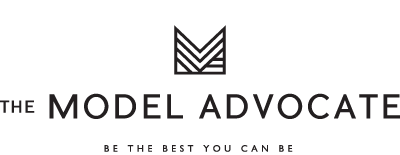We want you to want to workout! It’s the only way you’ll achieve enough commitment to healthy lifestyle changes. Since I don’t have any motivation issues, I’ve done some research into how psychology can help you if you do. Jonny has applied his extensive empirical knowledge of how to achieve fitness results and here’s some tips in a three step guide we’ve come up with.
1. Have a plan and visualise your objectives
It has been scientifically proven that actually specifying and calibrating goals makes them more likely to be achieved. SMART is a mnemonic acronym, helpful in giving a guide to setting objectives, and this works really well in a fitness context:
- Specific
- Measurable
- Attainable but Ambitious and Aligned with goals
- Realistic
- Time-bound (given a Timeframe)
Specifying goals will usually answer all the WH questions – WHAT do I want to accomplish, WHY (specific reasons, purpose or benefits), WHO is involved, WHERE – identify location, and WHEN. Actually visualising or writing out your goals is a very powerful motivator – why do you want to be fit? Write out those health benefits. Stick a “fit photo” on your fridge. Positive visualisation is a proven phenomenon. Gather as much information about yourself as you can. The more measurements you take, the more changes you’ll be able to track, which will keep you focussed on progress. A good trainer will be able to monitor this and set realistic and measurable goals using a number of different facts related to your body.
2. Create fitness habits by sticking to your plan for at least 21 days
The most important reason why you should set goals is to make sure fitness becomes a HABIT in your life: a regular tendency or recurrent practice that is hard to give up. Habit formation is the process by which new behaviours become automatic – and this is why specified goal setting is important. Old habits are hard to break and new habits are hard to form – the behaviour patterns we repeat are literally etched into our neural pathways. But it isn’t impossible and we can apply this knowledge of psychology to fitness.
Psychologists are generally agreed that if you want to change your behaviour, you have to focus on behaviour, not on willpower, thinking or even information. Making small bite sized changes that provide new experiences or insights will help lever you into new healthy habits. We know scientifically and empirically that all human beings experience positive physical and mental benefits after exercise – such as endorphins, self respect, pride, increased energy and confidence. By doing something repeatedly that acquires these positive benefits, eventually the mind associates these positives so closely with the activity that you actually enjoy the activity itself, not just the feeling you get after the activity. So no more motivation problems: you love working out now!
3. Implementation and avoiding willpower pitfalls
Once you’ve made a concrete bite sized achievable fitness plan, that is as specific, repetitive and routine focussed as your life will allow (with well defined attainable goals), you need to have an implementation intention. You should be able to say what you’ll do when as the next step towards goal completion. Make sure the goals are manageable – if they are achievable, you’ll be less likely to procrastinate.
Remember that willpower is finite. Research shows we have a limited reserve of willpower strength – so don’t try to make 15 lifestyle changes at once. Sadly human beings do have a failure accelerator tendency. “Oh, I’ve eaten one cookie, I’ve failed and might as well eat five now”. This is bizarre. If you had one flat tyre, you wouldn’t puncture the other three. If you missed your gym class today, try to go tomorrow instead. Give yourself permission to make mistakes and develop strategies for getting back on track quickly.
Summary
Making behaviour automatic – into a habit, is the key to lasting lifestyle changes. If you don’t actually want to do something, you will constantly find excuses in the busy lives we all lead today. So commit to making small incremental improvements in your activity levels with a specific goal based plan. Stick to them for as long as possible, at a minimum for 21 days. Eventually they will become a habit – and motivation will never be an issue.







